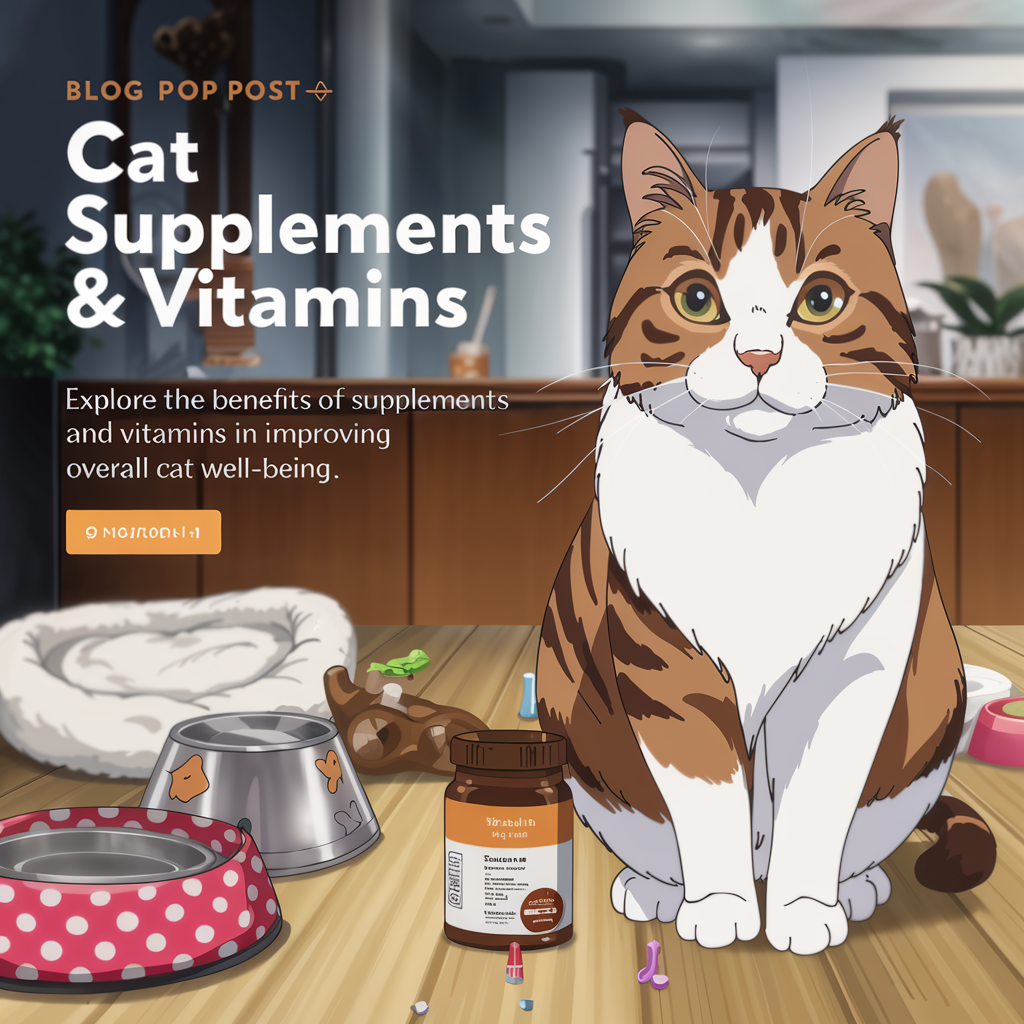As a dedicated cat lover, you know that ensuring your feline friend’s well-being goes beyond just providing food and water. Just like humans, cats can benefit greatly from supplements and vitamins. In this comprehensive guide, we’ll dive deep into how cat supplements and vitamins can enhance your cat’s overall health and well-being. Whether you’re a new cat owner or a seasoned pro, this information will help you make informed choices for your furry companion.
Understanding Cat Supplements & Vitamins
Cat supplements and vitamins are designed to support your cat’s health by filling nutritional gaps and addressing specific health concerns. They come in various forms, including tablets, capsules, powders, and liquids. Each type of supplement serves a different purpose, from improving coat condition to boosting immune function.
1. Why Cat Supplements & Vitamins Matter
Cats are unique creatures with specific nutritional needs that can sometimes be challenging to meet with regular cat food alone. Supplements and vitamins can provide additional nutrients that are crucial for your cat’s health, especially if they have special dietary needs or health conditions.
2. Types of Cat Supplements & Vitamins
- Multivitamins: These are comprehensive supplements that offer a range of vitamins and minerals. They are great for general health maintenance and can help ensure your cat is getting all essential nutrients.
- Omega-3 Fatty Acids: Often derived from fish oil, omega-3s support a healthy coat, reduce inflammation, and can even aid in joint health.
- Probiotics: These beneficial bacteria support digestive health and help maintain a balanced gut flora, which is crucial for overall well-being.
- Joint Supplements: Containing ingredients like glucosamine and chondroitin, these supplements can help maintain joint health and mobility, especially in older cats.
- Antioxidants: Vitamins such as E and C act as antioxidants that can help protect cells from damage and support the immune system.
3. Benefits of Cat Supplements & Vitamins
- Improved Coat Health: Supplements like omega-3 fatty acids can lead to a shinier, healthier coat and reduce shedding.
- Enhanced Digestive Health: Probiotics can improve your cat’s digestive function, reduce gas, and help with constipation or diarrhea.
- Stronger Immune System: Antioxidants and certain vitamins help strengthen the immune system, making your cat more resilient to illnesses.
- Better Joint Mobility: Joint supplements can help reduce stiffness and pain, making it easier for your cat to move around comfortably.
- Increased Energy Levels: Proper nutrition and supplementation can help maintain your cat’s energy levels and overall vitality.

4. How to Choose the Right Supplements for Your Cat
Choosing the right supplements involves understanding your cat’s specific needs. Here are a few tips:
- Consult Your Veterinarian: Always consult with your vet before introducing new supplements. They can provide recommendations based on your cat’s health history and current condition.
- Read Labels Carefully: Look for high-quality products with clear ingredient lists and dosages. Avoid products with unnecessary fillers or artificial additives.
- Monitor Your Cat’s Health: Observe your cat’s response to supplements. If you notice any adverse effects or changes in behavior, discontinue use and consult your vet.
5. Common Myths About Cat Supplements & Vitamins
- “All supplements are the same”: Not all supplements are created equal. Quality and efficacy can vary significantly between brands.
- “Supplements can replace a balanced diet”: Supplements should complement, not replace, a well-balanced diet. They are meant to fill gaps and support overall health.
- “Cats don’t need supplements if they’re healthy”: Even healthy cats can benefit from specific supplements to maintain their well-being and prevent future issues.
6. The Role of Cat Supplements in Different Life Stages
- Kittens: During their growth phase, kittens may benefit from supplements that support healthy development and immune function.
- Adults: For adult cats, supplements can help maintain health and prevent age-related issues.
- Seniors: Older cats might need joint support supplements and antioxidants to manage age-related conditions and maintain quality of life.

7. Integrating Supplements into Your Cat’s Routine
- Start Slowly: Introduce supplements gradually and monitor your cat’s response.
- Consistency is Key: Regular supplementation is important for achieving the best results.
- Mix with Food: Many supplements can be mixed with your cat’s food to make administration easier.
Conclusion
Cat supplements and vitamins play a crucial role in enhancing your cat’s health and well-being. By understanding their benefits and choosing the right products, you can support your cat’s nutritional needs and contribute to their overall quality of life. Always consult with your veterinarian and choose high-quality supplements to ensure your feline friend receives the best care possible.











